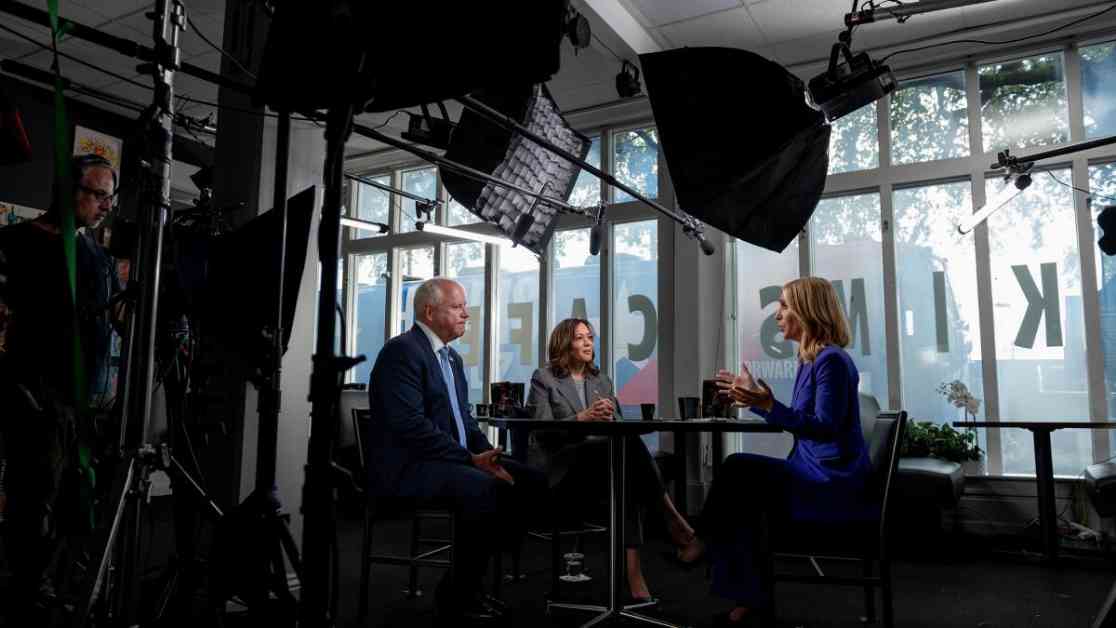Vice President Kamala Harris and Minnesota Governor Tim Walz sat down for their first interview since President Biden withdrew from his reelection campaign on July 21st. The interview, conducted by Dana Bash of CNN, took place in Georgia and was aired the same evening. Here are the key takeaways from their conversation:
Harris’s Pivot to the Center
Throughout the interview, it became evident that Vice President Harris has been shifting towards the center, both in her tone and policy positions, since taking the lead on the ticket. One significant announcement made during the interview was Harris’s commitment to appointing a Republican to her Cabinet if elected. While this move is not unprecedented, it does signal a willingness to work across party lines and foster a sense of unity in governance.
Former Presidents, like Obama and Bush, have also made similar bipartisan appointments in their Cabinets, demonstrating a desire to collaborate with individuals from diverse political backgrounds. Harris’s decision to embrace this approach reflects her commitment to building a more inclusive and cooperative administration.
Harris’s Stance on Policy Positions
Harris has faced criticism for what some perceive as flip-flopping on key policy issues. For example, she has shifted her position on issues such as fracking bans, universal healthcare, and border crossings. While some have accused her of inconsistency, Harris maintains that her values have remained constant, despite evolving policy stances.
One area where Harris’s position has shifted is her stance on the Green New Deal, a comprehensive set of proposals aimed at combating climate change. While she no longer explicitly supports the Green New Deal, Harris acknowledges the urgency of addressing climate change and emphasizes the need for concrete actions to address this pressing issue.
During the interview, Harris was pressed on her changing views, particularly regarding fracking bans. While she did not offer a direct explanation for her shift in position, Harris emphasized that her decisions are guided by her values and a commitment to addressing the most pressing challenges facing the country.
Challenges and Criticisms
Despite Harris’s attempts to clarify her policy positions, she faced criticism for what some perceive as evasiveness during the interview. Questions about her past statements and policy shifts highlighted the challenges she faces in navigating a complex political landscape.
Harris’s responses to questions about her policy shifts and decision-making processes left some viewers wanting more clarity and transparency. As she continues to navigate the campaign trail, Harris will need to address these concerns and ensure that her messaging remains consistent and clear to voters.
In conclusion, the first interview between Vice President Harris and Governor Walz provided valuable insights into their policy positions and approach to governance. As the campaign progresses, Harris will need to effectively communicate her vision for the country and address criticisms of inconsistency to build trust and credibility with voters.



























